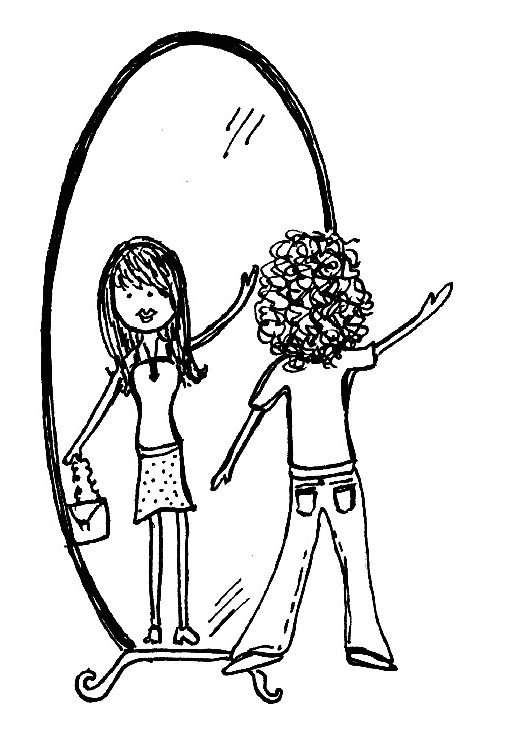When will my reflection show, who I am inside?
Sororities are a powerful way to make life-long relationships and become an active part of a university’s campus life. They do, however, have a reputation for their exclusive and, at times, intrusive nature.
Take the Alpha Chi Omega chapter of University of Southern California for example.
“If you are not wearing the required makeup, I will stop you and apply it myself. I don’t care if you’re late for class. I don’t care if you’re a sophomore or a super senior. I will stop you,” an anonymous AXO member’s letter said.
This was taken from an email written in August of 2013 and leaked to Jezebel.com in January. This aggressive warning about makeup was just one of the many worrying messages the sorority sisters sent out in their chapter.
“I think sororities can be beneficial in a lot of ways. They do a lot of charity events and it is great for underclassmen, especially, to feel a part of something,” senior Allyson Castillo said. “But the reputations that sororities have for their strict way of maintaining their image and behavior – it’s not just a stereotype.”
There seems to be a deeper, even more troubling underlying issue at hand with sororities like USC’s Alpha Chi Omega chapter- and it is not just a matter of stuck up, mean girls.
“Superficiality is not so much a Greek issue as it is an issue of human nature. After all, as an Incognito study shows, women only need 20 seconds to pass judgement on other women, and the first judgement is usually based on the waistline,” Sonali Seth of the Daily Trojan, USC’s publication, said.
Today, girls face an immense amount of pressure in regards to their image. From the harsh societal standards expressed in social groups to mass advertising plastered with rail thin and photoshopped women viewed by millennials daily, ideals of beauty for young girls are forced on them in the worst ways.
“While most consumers understand that these images are nearly unattainable, they do tend to compare themselves with these idealized images resulting in lower satisfaction with their own bodies and lower self-esteem,” researchers from the Missouri State University concluded in their Journal of Business & Economics Research.
It does not take a university-sponsored research endeavor to see society’s twisted views on body image and the lasting impressions left on girls. Any young woman would say that their ideal size would be a zero to two. In reality, what is wrong with a perfectly healthy size 10?
“Too often today are women objectified,” senior Ralphy Lara said. “They’re not objects; they’re human beings.”
Your donation will support the student journalists of Woodbridge High School. Your contribution will allow us to purchase equipment and cover our annual website hosting costs.







